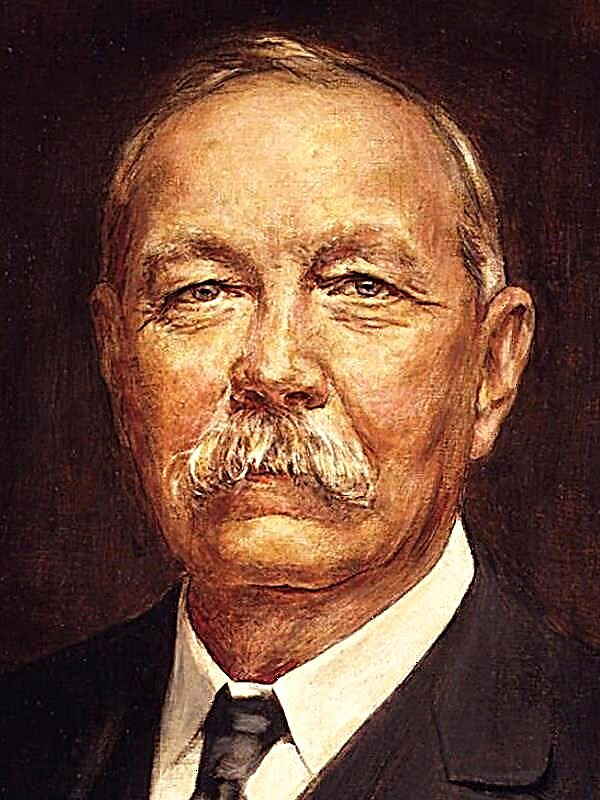There are at least five regions on Earth whose inhabitants are distinguished by their enviable longevity, health and vitality. Dan Buttner, as part of the National Geographic project, conducted several expeditions to each of these “blue zones” and found out what circumstances contribute to this from diet to living conditions.
Lesson One: Natural Movement
Provide yourself with additional physical activity. Try to use your bike, rake, broom, snow shovel as often as possible.
Enjoy. Make a list of the exercises that you like. Lead an active lifestyle. Train your main muscle groups at least twice a week. Make a habit of doing physical exercises for 30 minutes (ideally for an hour) five times a week. It is possible, but undesirable, to break these half an hour or an hour into several calls.
Walking, cycling and swimming strengthen the circulatory system. Weightlifting maintains muscle tone. Stretching exercises help maintain flexibility.
Walk. All centenarians walked and walk almost daily. Hiking is free, they do not load the joints too much, unlike running, do not require additional equipment, rally people.
Vigorous walking has the same beneficial effect on the heart and blood vessels as running. Walking at the end of a difficult day helps to get rid of stress, and after eating it facilitates digestion.
Find a company for yourself. Doing something together with other people is much more pleasant and more fun. Think with whom you can go for a walk. Combining a walk with a good chat will be the best strategy for cultivating a habit. Having a person you depend on will not let you drop the case halfway.
Break the garden. Work in the garden is associated with a low-intensity load, which involves a variety of movements: you dig, bend and drag various objects. Gardening helps relieve stress.
Do yoga. Sign up for yoga and attend classes at least twice a week. Equilibrium is of great importance, as falls are a common cause of bodily harm and death among older people. Even standing on one leg (for example, when brushing your teeth) is a small step towards improving balance.
Yoga classes help maintain balance by strengthening all muscle groups, increasing flexibility, having beneficial effects on joints and reducing pain in the lower back.
Lesson Two: Hara Hachi Boo
Put off too much. Older Okinawans pronounce an old saying before eating: hara hachi bu. This is a reminder that you should not get enough of your fill, but you should stop eating when the stomach is 80 percent full. Learn to understand when there is enough food on your plate to saturate you 80 percent. It is necessary to eat until you quench your hunger, without waiting for full satiation.
Eat low-calorie foods. The daily amount of calories consumed by Okinawans does not exceed 1900 kcal. And this method is really effective: it improves heart function. The benefits of calorie restriction are due to less damage done to cells by free radicals. But there is another plus: weight loss. As you know, a 10% decrease in body weight helps lower blood pressure and cholesterol, and this, in turn, reduces the risk of heart disease.
Make the food look larger in volume. People who eat a 100-gram sandwich, which looks like a 200-gram sandwich due to tomatoes, lettuce and onions, feel more full.
Use small dishes. Do not use large plates and wide glasses - buy small plates and tall narrow glasses. In this case, you will eat less without noticing it yourself.
Be careful with snacks. Refuse excess food. Take out of sight boxes of cookies, jars of candy and other sweet temptations.
Take care of the reminder. Bathroom scales are a simple but effective reminder not to overeat. Put the scales right in the aisle so you can not weigh yourself daily.
Eat more slowly. Rapid absorption of food helps you eat more. Slow chewing allows you to hear a signal about the disappearance of hunger.
Focus on food. The surest way to thoughtless eating is to eat and do something else at the same time: watch TV, read a book or write an email to a friend. If you are already going to eat, then sit down and eat. So you will eat more slowly and eat less.
Eat while sitting. Many of us have a snack on the go, in the car, standing in front of the refrigerator or on the way to the meeting. In this case, we do not notice what we eat and how much. Eat only while sitting, fully concentrating on food. This will allow you to eat slower and feel full.
Eat earlier. For centenarians, the main meal is in the first half of the day, in the afternoon or evening they have the easiest meal.
Lesson three: plants are our everything
Eat four servings of vegetables every day. Include at least two types of vegetables in each meal.
Limit your meat intake. Try to cook meat at most twice a week and serve portions no more than a deck of cards. It is very important to correctly distribute the calories of the diet between complex carbohydrates, fats and proteins, minimizing trans fats, saturated fats and salt. The main thing is to eat what the body needs and give up all that is superfluous.
Arrange an exhibition of fruits and vegetables. Place a beautiful fruit vase in the center of the kitchen table instead of hiding vegetables and fruits in the lower compartments of the refrigerator. Do not forget about legumes. They are an integral component of the diet of long-livers. Let bean or tofu be the main decoration of your lunch and dinner.
Eat nuts every day. Studies show that any nuts contribute to life extension. But remember: in 30 g. Nuts are usually from 160 to 200 kcal, therefore, 60 g. Contain almost 400 kcal.
Nuts protect the heart by lowering blood cholesterol. People who consume 56 g of nuts five times a week live on average two years longer than those who do not eat nuts.
The best are almonds, peanuts, pecans, pistachios, hazelnuts, walnuts and pine nuts. Brazil nuts, cashews and Australian nuts contain slightly more saturated fats and are less desirable. Nevertheless, all nuts are healthy.
Stock up. Always store nuts in packages of 50 g or less. You can store them in the refrigerator to keep them fresh. Keep a jar of nuts in the office so that you have something to eat during the day, so you don’t have to grab pieces immediately before dinner.
Lesson Four: Nectar of Life
Buy a box of high-quality red wine. According to the results of the research, it can be assumed that a glass of beer, wine or another alcoholic drink per day brings some health benefits.
A glass or two wines a day reduces the risk of heart disease, but excessive drinking increases the risk of developing breast cancer. Alcohol really relieves stress and alleviates the harmful effects of chronic inflammation. Moreover, a glass of wine that complements the meal allows you to eat less.
Additional advantages of red wine include its ability to clean arteries due to the polyphenols contained in it, which fight against atherosclerosis.At the same time, one should not forget about the toxic effects of alcohol on the liver, brain and other internal organs if you exceed daily servings. In this case, the risk of abuse will significantly outweigh any useful property.
Give yourself a happy hour. Sit with a friend or spouse for a glass of wine, using nuts as a snack.
Do not get carried away. A glass or two of wine a day is more than enough. Abuse negates any benefit, so do not forget about moderation.
Lesson Five: Get a Goal in Life
Formulate your life goal. Think about what you are passionate about, what really matters to you, what talents you would like to use. The clear meaning of life protects against stress and reduces the risk of developing Alzheimer's disease, arthritis and stroke. It was established that those who had a clear goal in life lived longer and had a sharper mind than those who did not have such a goal.
Such a simple desire as the desire to see adults of their children and grandchildren can serve as the goal. The goal may be related to work or a hobby, especially if you are able to immerse yourself in it.
Get a partner. Find someone with whom you can share your life goal, as well as a plan for its implementation. It can be your friend, family member, spouse or colleague - in general, anyone who can openly review your plan and evaluate successes.
Learn new things. Learn to play a new musical instrument or learn a foreign language. Both activities contribute to maintaining clarity and sharpness of mind. New activity often turns into a goal.
It is very important to train the brain - try yourself in something new and complex. As soon as you reach the heights in this activity, and it loses its novelty, move on to another. It's like strength exercises for the brain: they strengthen memory and lower the risk of developing Alzheimer's disease.
Lesson six: time to rest
Slow down the pace. Inflammation is a reaction of the body to stress, which manifests itself in the form of infection, trauma or increased anxiety. A little stress is useful - it helps fight the disease, heal or prepare for some kind of event. But with chronic inflammation, our body “inflates” itself.
There is a correlation between chronic inflammation and the rate of aging. Over time, the negative effects of inflammation accumulate and accelerate the development of diseases. Slowing the pace of life prevents chronic inflammation from developing and getting out of control and prevents the occurrence of concomitant diseases.
Reduce extraneous noise. Minimize the time spent on TV, radio and the Internet - this helps reduce extraneous noise. Clean the house of the TVs or leave them in only one room. Most electronic devices only increase mental confusion and go against the concept of relaxation.
Be sure to relieve stress. Chat with friends, go with your family for a walk. The time allotted for spiritual activities helps to slow down, and practices such as yoga and meditation give the brain a break - it helps to relieve tension.
Full sleep (seven to nine hours) promotes the functioning of the immune system, reduces the risk of developing heart disease and rests the brain. Try to go to bed and wake up at the same time, get comfortable mattress and pillows. The bedroom should be dark, cool and quiet.
Come early. Plan your time to arrive at any meeting 15 minutes earlier. This habit reduces the stress associated with transportation and being late. It allows you to relax and tune in for the upcoming meeting.
Meditate. Set up a quiet corner in your home. Put a pillow for meditation there or put a chair.Try to meditate every day, but don’t worry if you don’t have time for this on some day. Start with ten minutes and slowly increase the duration of meditation to half an hour.
Regular meditation allows you to calm the mind, muffle the relentless rumble of voices in your head, concentrate and see the world as it is, and not the way we want to see it. It helps to tune in and realize that the bustle, anxiety and many urgent problems are not really that important. Once you understand this, all other relaxation methods will be given to you much easier.
Lesson Seven: Social Connections
Play a more active role. If you already belong to any community, take an active part in its life - life expectancy depends on it. Singing in a choir or volunteering improves well-being and reduces mortality.
Faith in God - One of the good habits that increase the chances of a long healthy life. Studies show that attending church services (even once a month) has a positive effect on life expectancy.
People attending church are physically more active, less likely to be harmful, more likely to choose healthy and healthy habits, are distinguished by self-esteem and a higher sense of dignity. They also have the opportunity to meditate, relax and meditate either through prayer or during the service.
Belonging to a religious community contributes to the establishment of extensive social ties. To a certain extent, belonging to religion allows you to get rid of the stresses of everyday life, passing them to a higher power. Believers follow clearly defined rules of conduct and thereby gain peace of mind, knowing that they live "right."
Lesson Eighth: First Loved Ones
Get closer. If you live in a large house, select one room in which the whole family will gather daily. The most long-lived people usually put the family in the first place. Their lives are around marriage and children, family duty, rituals, and spiritual intimacy.
In strong families, it is established at least once a day to eat at a common table, go on a joint holiday and spend time together. Studies show that older people living with children are less susceptible to illness and stress, eat healthier foods, have fewer accidents, have a clearer mind and better social skills.
Come up with rituals. Children need rituals like air, they love repetition. A daily family meal should become a tradition that is not customary to break. Cultivate family holiday rituals. Be sure to celebrate all the holidays together.
Create a family altar. In the houses of Okinawa, the ancestral altar takes pride of place in the best room and serves as a reminder that we are not alone in time, but are inextricably linked with each other. Photos of parents and children can be hung on the wall or family photos can be stored in chronological order.
Put your family first. Give children, parents and spouses time and effort. Play with children, take care of marriage and honor your parents.
Lesson Nine: The Right Tribe
Define your inner circle. Surround yourself with those who share the values mentioned above. This is the most important thing you can do to change your life for the better. It is much easier to learn good habits if they are followed by everything around.
Social connections lead to a long life. People with fewer social connections die two to three times more often than those who have a lot of them. The nature of the relationship does not matter for longevity, provided that it is truly a connection. Even the absence of a spouse or the second half can be offset by other forms of unity.
More extensive social contacts are one of the reasons that women live longer than men.They have more united support groups, they take a more active part in each other’s lives, help each other more often, more willingly and openly express feelings, including sadness, anger and other aspects of close relationships.
Highlight people who follow healthy habits and are guided by whom you can rely on.
Have people to you. Among the centenarians, we have not met a single whiner or squeamish. People who are pleasant in communication are popular, and are drawn to them. Such people, even at an advanced age, have an extensive circle of acquaintances, guests often come to them, they are happily looked after. They are less likely to experience stress and live a busy life.
Spend time together. Spend at least half an hour a day with members of your inner circle. Make an appointment or a joint meal. Embark on a joint walk. Building friendships requires some effort, but it pays off for additional years of life.












